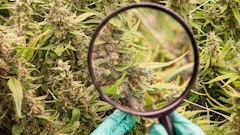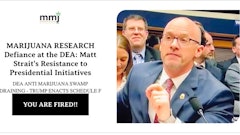
The fate of South Carolina’s medical cannabis legalization measure is in the hands of a House panel this week after the bill passed the Senate last month.
The six-member Medical, Military, Public and Municipal Affairs subcommittee will hold a hearing on S. 150, the SC Compassionate Care Act, on March 31, according to The State.
The legislation, sponsored by South Carolina Sen. Tom Davis, R-Beaufort, outlines 13 qualifying conditions, including cancer, multiple sclerosis, post-traumatic stress disorder, chronic medical conditions causing serious muscle spasms, and any chronic or debilitating condition for which an opioid is prescribed.
The bill would allow patients to access a two-week supply of medical cannabis in the form of oils, vaporizers, salves, topicals and patches.
The legislation would levy a 6% sales tax on medical cannabis products, and would grant South Carolina’s cities and counties the power to opt out of hosting the industry within their jurisdictions.
Davis has been advocating for medical cannabis reform for years, and while a similar proposal stalled in the Senate last year, this year’s legislation cleared that chamber Feb. 9 in a 28-15 vote.
RELATED: South Carolina Medical Cannabis Marathon Finds Senate Approval
Debate on the bill began Jan. 26 on the Senate floor and continued for three weeks, during which more than 65 changes were considered.
RELATED: South Carolina’s Medical Cannabis Debate Enters Third Week
Rep. Leon Howard, D-Richland, who chairs the House Medical, Military, Public and Municipal Affairs subcommittee, told The State that the SC Compassionate Care Act will likely receive the panel’s approval and advance to the full House for debate.
Rep. Joe Bustos, R-Charleston, the only Republican lawmaker on the subcommittee, told the news outlet that while he has questions about the bill’s implementation, “it deserves a fair hearing” if medical cannabis can help reduce patients’ pain.
If the SC Compassionate Care Act advances out of committee, the House will have less than two months to consider the bill before this year’s legislative session wraps up in May, The State reported.
South Carolina Gov. Henry McMaster has not yet indicated whether he plans to sign the legislation or veto it if it should clear the Legislature this year, according to the news outlet.
























